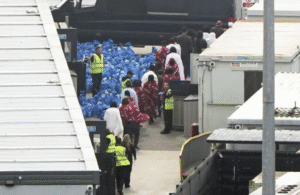China has successfully launched a spacecraft that aims to collect samples from an asteroid orbiting near Mars, with hopes of uncovering new scientific insights and deepening our understanding of the solar system. The ambitious mission, named Tianwen-2, lifted off early Thursday from southern China aboard the Long March 3B rocket, according to the China National Space Administration (CNSA).
The spacecraft is set to visit asteroid 2016HO3, collecting samples that are expected to return to Earth in about two years. The probe will then continue on to explore main-belt comet 311P, which orbits even farther out than Mars. These celestial bodies were chosen due to their relatively stable orbits, which scientists believe could hold vital clues about the early solar system and the origins of Earth’s water.
CNSA Director Shan Zhongde described the mission as a major milestone in China’s expanding interplanetary exploration program. Over its projected decade-long journey, Tianwen-2 is expected to make significant scientific contributions and push the boundaries of what we know about the universe.
China has been ramping up its space capabilities in recent years. It has already achieved major feats such as returning lunar rock samples from the far side of the moon—a region rarely explored due to its challenging terrain—and placing an unmanned rover on Mars.
The country also operates Tiangong, or “Heavenly Palace,” a Chinese-built space station that hosts a rotating crew of three astronauts. This station stands as an alternative to the International Space Station (ISS), which China was barred from joining due to U.S. national security laws that prohibit direct collaboration between NASA and China.
While China has expressed interest in cooperating internationally in space exploration, U.S. restrictions continue to limit potential partnerships.
The far side of the moon, which faces away from Earth, is especially notable for its rugged landscape of mountains and impact craters. China’s successful mission there marked a significant achievement in lunar exploration.
Since putting its first astronaut into space over two decades ago, China has quickly advanced in space technology and exploration, becoming only the third country to independently send humans into space. Looking ahead, China plans to land astronauts on the moon before 2030, and is also preparing for the Tianwen-4 mission to explore Jupiter, though details on that project remain limited.













